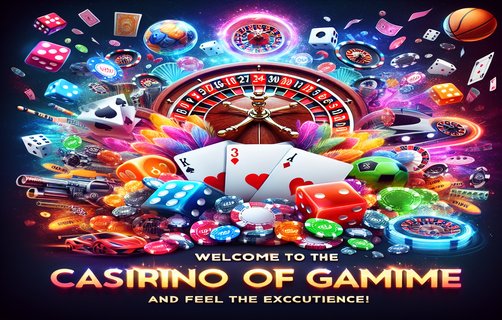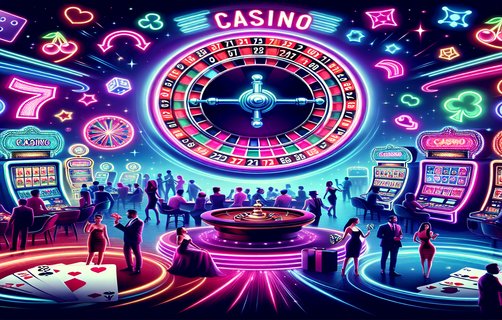The Intersection of Technology and Ethics: Analyzing the Shifting Landscape of Gambling
In recent years, the gambling industry has evolved tremendously, powered by advances in technology and the rise of social media platforms. This metamorphosis raises crucial questions about responsible gambling practices, particularly as trends like AI in gambling and online casinos proliferate. The consequences of these changes warrant serious introspection from both consumers and the developers of these games.
AI in gambling is not just a technological marvel; it symbolizes the increased complexity of the gambling landscape. From predictive analytics used by casinos to tailor experiences for patrons, to sophisticated algorithms designed to detect problem gambling behaviors, AI is playing a dual role. On one hand, it enhances user experience and engagement; on the other hand, it poses risks that can lead to addiction. The question emerges: is the thrill of the game worth the potential peril posed by algorithms that might exploit cognitive biases?

The gambling industry has made strides in combating addiction through mechanisms like self-exclusion. This initiative allows players to voluntarily ban themselves from gambling activities, thus providing a vital tool for those who recognize their need to disengage. But how effective are these measures when casinos, often driven by profit, might employ tactics to undermine the significance of self-control? The paradox lies in the fact that while technology provides solutions, it also creates new challenges that can lead to deeper entanglement in gambling addiction.
Adding another layer of complexity to the situation is the advent of Facebook casinos. With millions of users engaging on platforms like Facebook, the social element of gaming now spills over into the world of gambling. These virtual lodges offer both entertainment and a social outlet; however, they also exist in a regulatory grey area. As players can engage without the stakes usually associated with traditional casinos, this can normalize gambling behavior among young users, potentially breeding a new generation of problem gamblers.
The role of game developers cannot be overstated in this dynamic. They lie at the forefront of innovation, creating games that can be both captivating and deliberative. The use of immersive technologies like virtual reality in online gaming crafts a unique experience that can be enjoyable yet addictive. This presents an ethical dilemma: should developers prioritize innovation at the expense of user well-being? There exists a pressing responsibility for these creators to foster an environment where gambling is portrayed as a form of leisure rather than a pathway to financial ruin.

Another crucial aspect to consider is payout speed, which has become a pivotal factor in user experience. A high payout speed can create a euphoric cycle of wins and losses, significantly affecting gambling behavior. Users tend to gravitate toward platforms that provide quick returns, even if those returns are minimal. This responsive nature of online gambling can lead to a vicious cycle that exacerbates problem gambling.
Events like the World Series of Poker highlight not only the allure of gambling but also the community created around it. These competitions draw in millions, raising questions about the normalization of gambling in society. The glitz, glamour, and professional validation of such events can overshadow the stark realities faced by those grappling with addiction. What message does the spectacle of high-stakes poker convey to the casual observer? It is an invitation to participate in a game that thrives on risk.
Current statistics around problem gambling are alarming. Recent studies indicate that a significant percentage of gamblers exhibit harmful behavior patterns. According to various reports, rates of problem gambling can reach upwards of 5-10% in certain populations, a worrying indicator of the industry's impact. This warrants immediate action from all stakeholders involved: regulators, operators, and communities must come together to instigate meaningful change.
In summary, the gambling landscape is undergoing a seismic shift influenced by technology and social media. While advances like AI and innovative gaming models can enhance the user experience, they also carry the risk of exacerbating gambling addiction. Fair practices, responsible design, and self-regulation should guide industry development moving forward. As players, creators, and regulators, the responsibility lies with us to ensure that our engagement with gambling remains a safe and enjoyable experience rather than a perilous descent into addiction.
